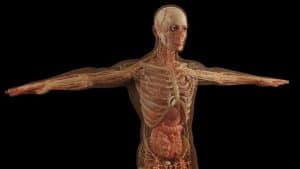
Pain, weakness, and numbness from a pinched nerve can significantly impact your productivity. A pinched nerve can happen anywhere but commonly affects the lower back, neck, shoulders, wrists, and elbows. Roswell pinched nerve results from extra pressure from the surrounding tissues, either the discs, bones, tendons, muscles, or cartilages, causing irritation or damage. Here is the good news; pinched nerve pain can go away fast, but only when the right intervention measures are implemented. Among the home remedies that you can employ to deal with pinched nerve pain includes:
- Rest
Rest, including quality sleep, is essential when managing pinched nerves. Rest allows the inflamed nerve to calm down, alleviating the pain. Sleep allows the body to self-repair. With enough rest and sleep, you can recover fast. Resting means avoiding activities that add pressure to the affected area. This is following the area since what works for the lower back or pain may not suffice for the elbows or wrist. The rest may mean avoiding intensive activities like running, lifting heavy objects, texting, and sports like tennis. Rest ensures you don’t overuse the nerve and the surrounding tissue. This is essential since overuse is usually the culprit behind the pinched nerve.
- Revise your posture
Your posture, especially how you stand or sit, could cause the pinched nerve or aggravate the situation. Incorrect posture puts extra pressure on your spine. This results in concerns such as muscle damage, leading to pinched nerves. The tricky part with the posture is that it does damage over time.
You can reduce the risk of posture damage by investing in adjustable chairs, neck rests, and cushions to alleviate the pressure when sitting. Observing your posture when standing, walking, or exercising is also important, keeping the spine more aligned and ensuring you don’t put unnecessary pressure.
- Stretches, yoga, and massage
Stretching, yoga, and gentle massage can help relieve the pressure and tension, alleviating pinched nerve pain. Nonetheless, you must be careful to ensure you don’t aggravate the symptoms. If you stretch too much or go for deep tissue massage, you could put extra pressure and worsen the symptoms. Working with a physical therapy expert can help you find an ideal combination of gentle stretches and massage for your situation, supercharging the quest to alleviate the symptoms.
- Legs’ elevation
Alleviating your legs, especially as you sleep, can relieve significant pressure from the spine. The elevation works best when dealing with pinched nerves affecting the lower back. You can elevate the legs by placing pillows under the knees.
- Ice and heat
Ice is great when the pain is still fresh. As the pain subsides, heat comes in handy as it helps relax the tight muscles surrounding the pinched nerve and improve blood flow, which speeds up the healing process.
As you strive to avoid or manage pinched nerves, wearing protective gear when exercising or engaging in sporting activities can help maintain the right posture. Devices such as splints and braces also help. You can also turn to over-the-counter medication. You should see a professional for diagnosis and treatment if the symptoms persist.
